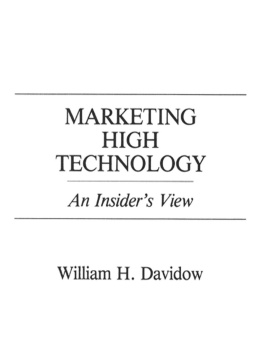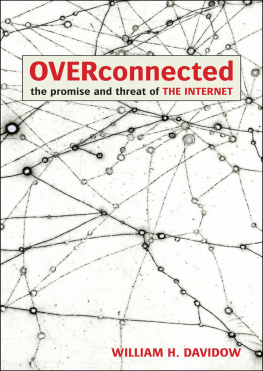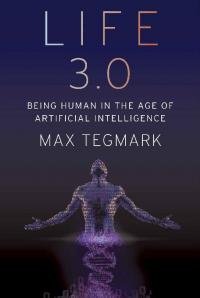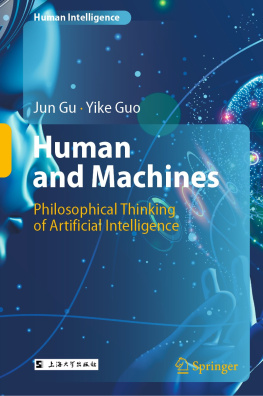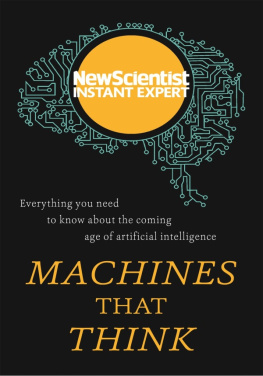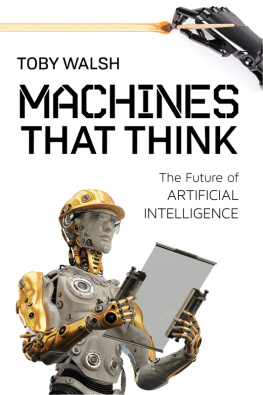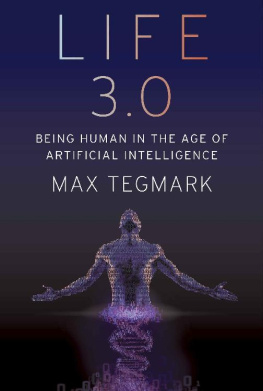The Autonomous Revolution
OTHER BOOKS BY THE AUTHORS
The Virtual Corporation
(HarperCollins, 978-0877306570)
The Autonomous Revolution
Reclaiming the Future Weve Sold to Machines
BY William H. Davidow
AND Michael S. Malone

The Autonomous Revolution
Copyright 2020 by William Davidow and Michael S. Malone
All rights reserved. No part of this publication may be reproduced, distributed, or transmitted in any form or by any means, including photocopying, recording, or other electronic or mechanical methods, without the prior written permission of the publisher, except in the case of brief quotations embodied in critical reviews and certain other noncommercial uses permitted by copyright law. For permission requests, write to the publisher, addressed Attention: Permissions Coordinator, at the address below.

| Berrett-Koehler Publishers, Inc.
1333 Broadway, Suite 1000
Oakland, CA 94612-1921
Tel: (510) 817-2277, Fax: (510) 817-2278
www.bkconnection.com |
Ordering information for print editions
Quantity sales. Special discounts are available on quantity purchases by corporations, associations, and others. For details, contact the Special Sales Department at the Berrett-Koehler address above.
Individual sales. Berrett-Koehler publications are available through most bookstores. They can also be ordered directly from Berrett-Koehler: Tel: (800) 929-2929; Fax: (802) 864-7626; www.bkconnection.com
Orders for college textbook/course adoption use. Please contact Berrett-Koehler: Tel: (800) 929-2929; Fax: (802) 864-7626.
Distributed to the U.S. trade and internationally by Penguin Random House Publisher Services.
Berrett-Koehler and the BK logo are registered trademarks of Berrett-Koehler Publishers, Inc.
First Edition
Hardcover print edition ISBN 978-1-5230-8761-7
PDF e-book ISBN 978-1-5230-8762-4
IDPF e-book ISBN 978-1-5230-8763-1
Digital audio ISBN 978-1-5230-8764-8
2019-1
Produced by Wilsted & Taylor Publishing Services; Copy editor: Nancy Evans, Wilsted & Taylor; Text designer: Michael Starkman, Wilsted & Taylor; Jacket designer: Alvaro Villanueva, Bookish Design
If we are to be judged
by the wonderful things we create,
I am a great man because my wife, Sonja,
and I have created a loving, happy, and
accomplished family with excellent values
whose members have gone on
to create more wonderful things.
This book is dedicated to them.
William Davidow
For my two sons,
who will see both sides of history.
And four wonderful women
my wife Carol, sister Edie,
Leslie Lopez, and the late Linda DiNucci
for getting me through the tough patch.
Michael Malone
Contents
by David M. Kennedy
Foreword
David M. Kennedy
TO STUDY THE HISTORY OF HUMAN LIFE and human societies is to study change. If there were no change, our understanding of any given moment in time would yield the key to understanding all moments in time. History as a method of inquiry would then resemble science, whose central quest is to elucidate the constants of the physical world that constitute the laws of nature. History, like science, would then have predictive valuealthough making predictions about humanitys future in a world without change would be a decidedly no-sweat matter of same ol, same ol, hardly requiring powerful analytical chops.
But history knows no such laws, and historians no such sinecure. The objects of historical analysis, by their very nature, are in a state of ceaseless flux. Historians have long found this characteristic of their subject matter both fascinating and frustrating.
More than 2,500 years ago, the pre-Socratic philosopher Heraclitus (a melancholic man living in the then-Persian city of Ephesus, whose figure in the foreground of Raphaels famous Vatican fresco, The School of Athens, is customarily thought to be modeled on Michelangelo) insisted that remorseless change was the very essence of the universe, confounding all efforts fully and finally to comprehend it. No man, he summarily said, ever steps into the same river twice. Thats certainly the pithiest and probably the profoundest statement ever made about the mystery of time.
Since the dawn of the Industrial Revolution more than two centuries ago, many observers have asserted that the river of time has been palpably accelerating its flow rate, posing ever-greater challenges to our capacities for comprehensionnot to mention our ability to peer into the future. The great American historian Henry Adams memorably inscribed that thought into the American canon in his 1918 autobiography, The Education of Henry Adams. Few if any students of history then or later have brought to their labors more impressive analytic gifts than Adamss. Yet, standing in the Gallery of Machines at Pariss Great Exposition in 1900, contemplating the enormous physical and social transformations unleashed by modern industrial technologies, even Adams was gobsmacked. He found himself, he reflected, with his historical neck broken by the sudden irruption of forces totally new.
William Davidow and Michael Malone now take their place in the venerable tradition of such students of change as Heraclitus and Henry Adamsthough their historical necks remain unbroken as they focus their formidable explanatory acumen on the myriad changes that are today transforming the terms of life for billions of people in every corner of planet Earth. Notably, they have migrated a familiar scientific termphase changeinto the domain of historical analysis, with intriguing effect.
Even casual students of the physical world will recognize that phase change describes transformations in form without changes in chemical composition. Waters presence in different statesliquid, solid, and gaseousis a well-known example. So, too, Davidow and Malone argue, homo sapiens does now and will continue to inhabit societies with governments, schools, churches, markets, media, and an array of other institutions. But while human nature may remain a constant, the forms of each of those creations that have served humanitys needs for individual aspiration and collective existence, as well as the patterns of their interaction and interdependence, are transmogrifying at an astonishing and arguably unprecedented rate.
The sources, drivers, vectorsand challengesof those many alterations in form are the subjects of this timely and incisive book. Its central argument is that we are living through a massively consequential phase change in which the cumulative impacts of several structural transformationstechnological, political, economic, behavioral, and even attitudinalare maturing and converging into a tsunami of unexampled challenges and opportunities. We are on the cusp of an era that will bring new ways of doing business, new ways of working, new ways of governing, communicating, recreating, and new ways of living. All will demand new rules, new norms, new structures and infrastructures, new tools, and new thinking.
In a work studded with arresting insights, few are more unsettling than the following, offered in the context of the authors discussion of artificial intelligence, and the Autonomous Revolution that is utterly upending the world of work, and therefore education and even human memory:
Next page

